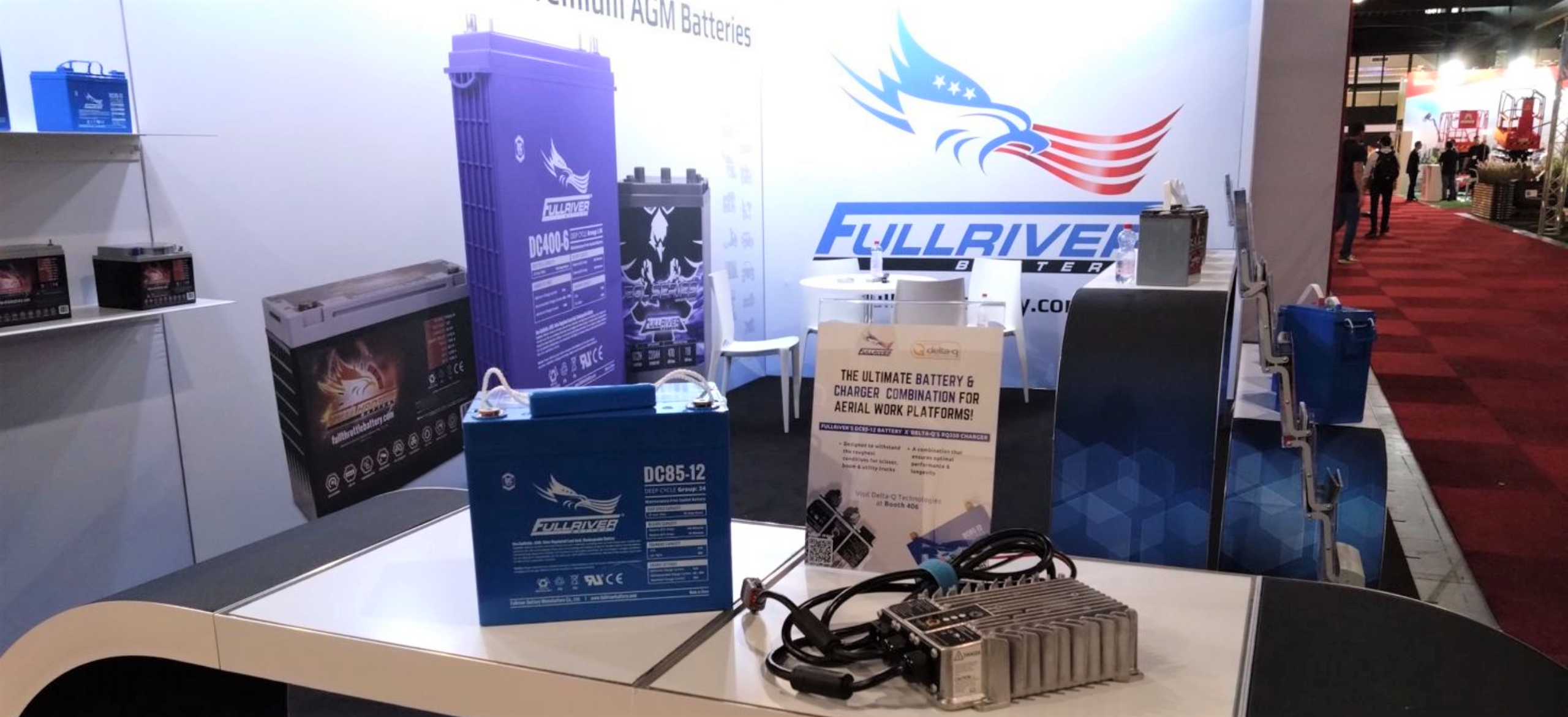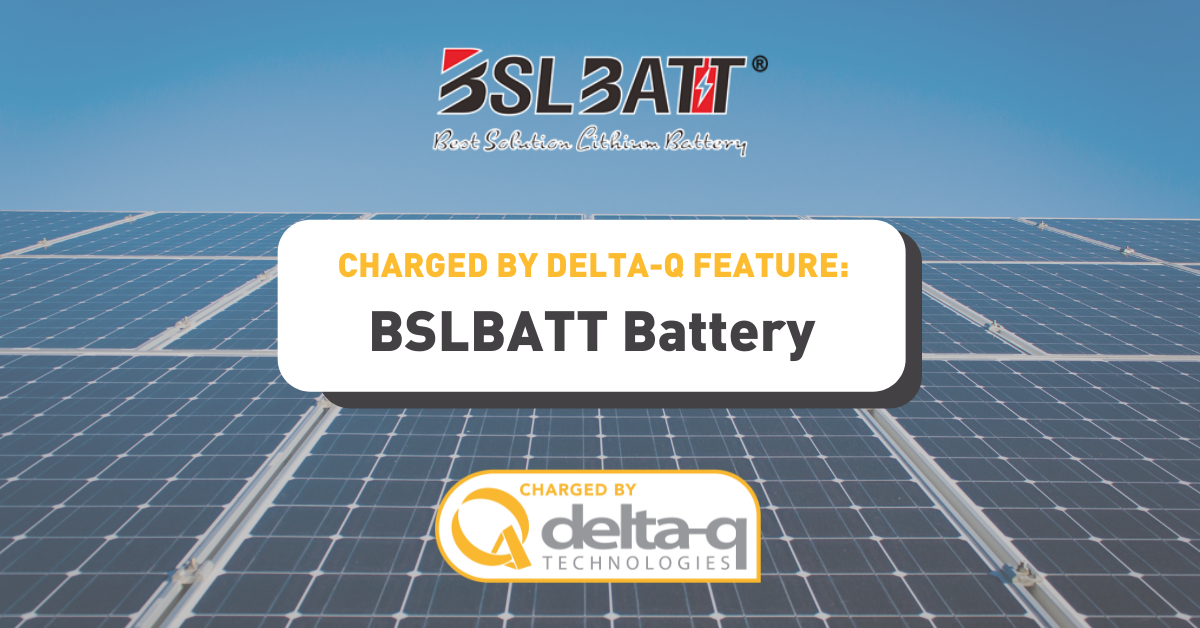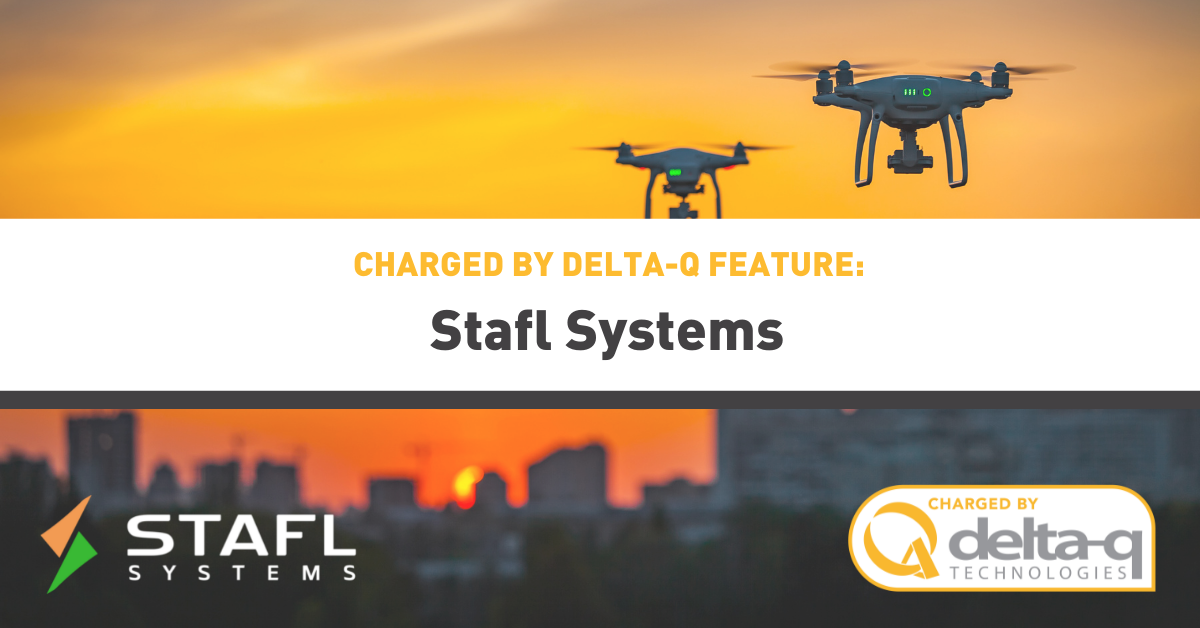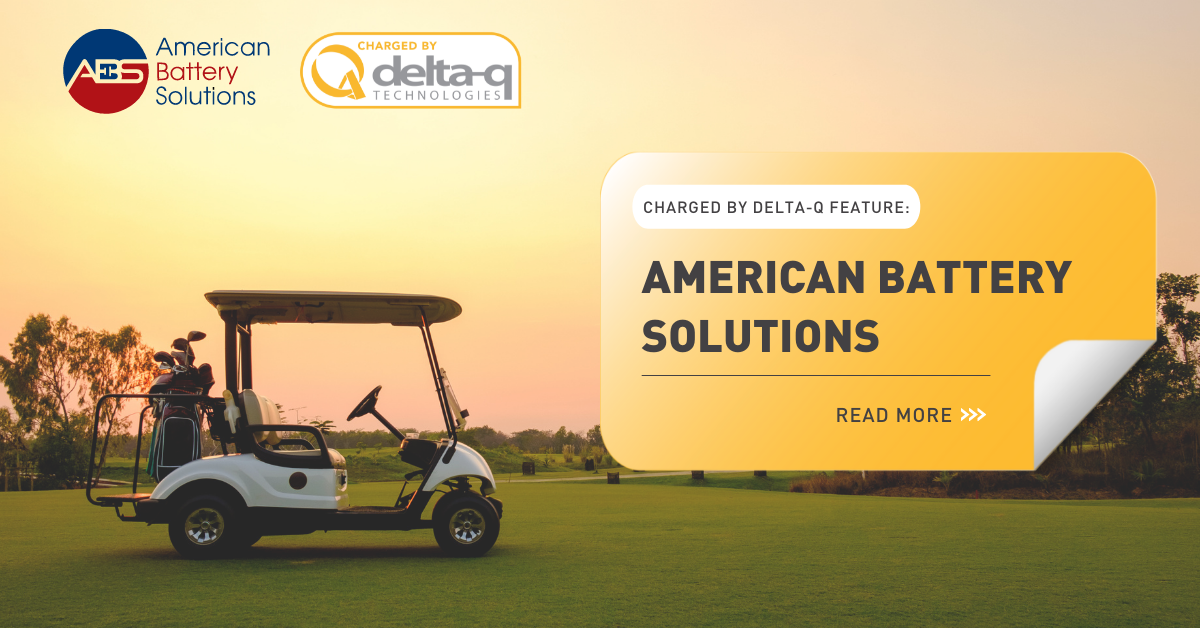Aerial work platforms (AWP), a machine category that includes scissor lifts, boom lifts and utility trucks, play a critical role in construction, maintenance, and various other industries where safety, efficiency, and reliability are paramount. The success of these machines hinges upon the performance and longevity of their battery and charging systems.
Delta-Q Technologies (Delta-Q) and Fullriver Battery (Fullriver), our Charged by Delta-Q partner, recognized this and collaborated to develop an engineered solution that can withstand the harshest conditions these vehicles face. The solution includes Delta-Q’s RQ350 battery charger and Fullriver’s DC85-12 battery, delivering optimal performance, exceptional longevity, and unmatched efficiency. This effective powering solution was showcased at the APEX Show in Maastricht, Netherlands, in June 2023, the world’s largest dedicated international access equipment exhibition, held triennially.
In a recent interview with Aaron Plew, Director of Product and Communications at Fullriver Battery, we gained insights into the development process of this solution and how it elevates the performance of aerial work platforms. Additionally, we explored the benefits for end-users, its potential to drive overall efficiency and productivity in various operations, and the future of battery and charging in the aerial work platform sector. This collaborative effort sets a new standard for reliability and showcases our dedication to creating sustainable and eco-friendly solutions.
Can you provide an overview of the DC85-12 Deep-Cycle AGM battery for the aerial work platform industry? What are some of the critical benefits of the DC85-12 battery and RQ350 charging solution combination?
Aaron: The DC85-12 is a 12V, 85Ah, group 24 battery. It is much more compact than the more common GC2 but still offers plenty of capacity. Of course, the RQ350 is also very compact, even compared to other modern battery chargers.
What pain points do customers commonly face in the aerial work platform industry? How does this product combination solve it?
Aaron: The RQ350 and DC85-12 are an excellent combination for the aerial work platform industry. The compact and water-resistant RQ350 can recharge a set of DC85-12 in as little as a couple of hours, with a maximum of seven hours for a fully discharged battery. The market has really begun a massive shift to AGM and other maintenance-free options in just the last two years. The list of reasons are long, but perhaps the two biggest drivers are related to watering, often being impossible, and maintaining charge when vehicles are remote or out for rent. What the industry techs love about the RQ350 is the reliable and optimal charging results, and the IP rating that allows it to withstand harsh environments, even at the other end of a power washer.
Could you explain the technology behind the DC85-12 battery and how this battery and charger combination enhances the performance of aerial work platforms?
Aaron: As alluded to in the previous question, maintaining batteries is a real challenge in AWP, with most of this equipment being utilized in rental fleets. With the DC85-12, the need to water, clean off corrosion, and change cables is eliminated. It uses a high purity of lead, resulting in very low internal resistance, dramatically reducing self-discharge, and increasing charge acceptance. The way the DC85-12 is designed, it can be discharged to a very low state of charge, allowing for a much longer workday. Paired with the RQ350, the battery recharges perfectly with Fullriver’s customized algorithm and features an excellent recovery mode for a battery pack in a low state of charge.
Can you discuss the charging process for your battery system? How long does it typically take to charge, and how long does it last during operation?
Aaron: Fullriver batteries utilize a three-stage charging process (Bulk, Absorb, and Finish). Depending on the battery’s state of charge, this process can take as little as an hour and a maximum of around seven hours for a pack in a low state of charge (24V, 85Ah pack).
How does this battery and charging system contribute to the overall efficiency and productivity of aerial work platforms?
Aaron: Due to the use of 99.994% pure lead, brass terminals, and higher valve settings of the Fullriver DC Series, the battery spends less time in charge than most flooded products and other brands of AGM batteries. The technology allows for deeper discharging (90-100% depth of discharge), allowing users to work longer before needing to plug in again. This can be especially critical at work sites where there isn’t power available.
What kind of support or training do you provide customers who choose your battery solutions?
Aaron: Fullriver tailors its support to the specific needs of our customers. Whether the need is for in-person training, technical document support, or communication via phone or email. Our technical staff is very responsive and often available at short notice to support our customer base. Furthermore, our Delta-Q product knowledge is nearly on par with our own battery competency.
What is your vision for the future of battery and charging technology in the aerial work platform industry, and how do you plan to stay ahead of the competition?
Aaron: After nearly 30 years of building batteries for the industry, we have gained a lot of insight into the applications we serve. Among our four lines of batteries, the EGL Series is the newest and marks an advance in lead-acid technology with its ultra-high cycle life and updated platform. It was designed with low-speed EVs in mind. But we haven’t even come close to stopping. We are constantly testing and further developing our products. With Delta-Q’s ever-expanding product roadmap, our work continues as we work to gain ever more insight.
About Charged by Delta-Q
The “Charged by Delta-Q” program was created to build a community for OEMs, battery and BMS manufacturers to facilitate innovation and collaboration among the electric battery, charging and equipment sectors. Partnering with industry-leading battery and battery management systems (BMS), companies will help OEMs reduce the technical risk and time spent researching and testing batteries and chargers to find compatible electric power systems. All battery companies that are part of this program have had their optimized products iteratively tested and validated with Delta-Q chargers. Interested in learning more about Charged by Delta-Q? Visit https://delta-q.com/charged-by-delta-q/





